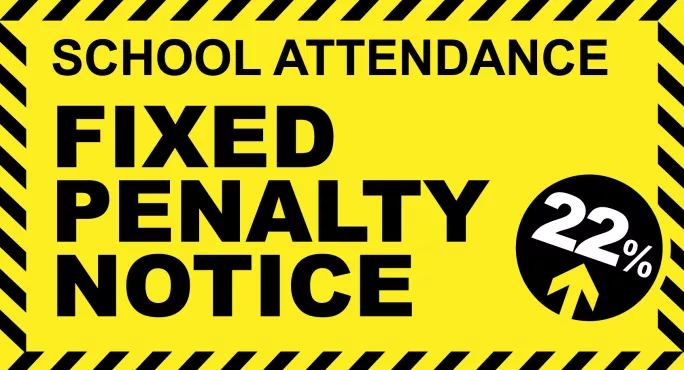Parent fines for term-time holidays rise by almost a quarter

The number of fines issued to parents for unauthorised term-time holidays increased by almost a quarter in the past academic year, government data reveals today.
There were 443,322 penalty notices - fines issued to parents by local authorities for failing to ensure that their child attends school - handed out for unauthorised trips in 2023-24.
This represented an increase of 87,141 penalty notices (24 per cent) compared with the previous academic year, according to data released by the Department for Education this morning.
The total number of penalty notices for unauthorised absence in 2023-24 was 487,344, up from 398,796 the previous year - a 22 per cent increase.
Some 91 per cent of the total penalty notices issued were for unauthorised holidays, with smaller proportions being for lateness (0.2 per cent) and “other reasons” (8.8 per cent).
- Pupil absence: Understand the new regulations on parent fines
- School attendance: Persistent absence falls, DfE data shows
- Feature: Is a HALO the key to improving attendance in schools?
The Labour government has increased fines for the first time since 2012, with parents now being charged £160 (up from £120) if it is paid within 28 days. Today’s figures relate to the academic year before this increase was brought in.
Although recent attendance data suggests that persistent absence is improving, headteachers’ leaders have previously warned that fining parents is a “blunt tool” that does not get to the “root causes of non-attendance”.
Call to tackle ‘exorbitant holiday prices’
Commenting on today’s figures, Pepe Di’Iasio, general secretary of the Association of School and College Leaders, called on the government to tackle ”exorbitant prices” charged by the travel industry during school holiday periods.
“There is no simple resolution to this issue, but we do think it is time for the government to explore ways in which they could restrain travel firms from raising their prices during school holidays. We cannot see how this problem can be solved another way,” he said.
Both Daniel Kebede, general secretary of the NEU teaching union, and Paul Whiteman, general secretary of the NAHT school leaders’ union, agreed that fines were ineffective and that the government needed to do more to bring down the cost of family holidays during school breaks.
The region with the highest rate of penalty notices was Yorkshire and the Humber, at 10.7 per cent. The the lowest rates of penalty notices issued were in Inner London (3.5 per cent) and Outer London (3.4 per cent).
Education secretary Bridget Phillipson said the country needs a ”national effort to tackle the epidemic of school absence” and that the government will do “everything in its power to tackle the problem”.
However, she added that “behaviour like term-time holidays cannot be changed with support alone - which is why fines have a vital place in our system, so everyone is held accountable for ensuring our children are in school”.
Fines per parent will be capped to two fines within any three-year period. Once this limit has been reached, other action like a parenting order or prosecution will be considered.
Parenting orders also on the rise
Today’s DfE data also reveals that other measures that address attendance are on the rise.
Attendance case management involves a pupil-specific approach to tackle absence problems, such as early intervention work.
For the 2023-24 academic year, 80,100 cases went through attendance case management, compared with 77,100 cases the previous year.
Around 14,900 parenting contracts - voluntary but formal written agreements between parents and the local authority or school governors - were offered in the past academic year, up from 13,600 last year.
Parenting orders, issued by courts following prosecution for unauthorised absence, were up from 30 to 40 in 2023-24.
However, the number of education supervision orders (ESO), which local authorities must consider before prosecuting parents, was lower last year compared with 12 months earlier.
In 2023-24, 30 ESOs were issued in eight local authorities, compared with 46 in 2022-23.
For the latest education news and analysis delivered every weekday morning, sign up for the Tes Daily newsletter
Register with Tes and you can read two free articles every month plus you'll have access to our range of award-winning newsletters.
Keep reading with our special offer!
You’ve reached your limit of free articles this month.
- Unlimited access to all Tes magazine content
- Save your favourite articles and gift them to your colleagues
- Exclusive subscriber-only stories
- Over 200,000 archived articles
- Unlimited access to all Tes magazine content
- Save your favourite articles and gift them to your colleagues
- Exclusive subscriber-only stories
- Over 200,000 archived articles
topics in this article



